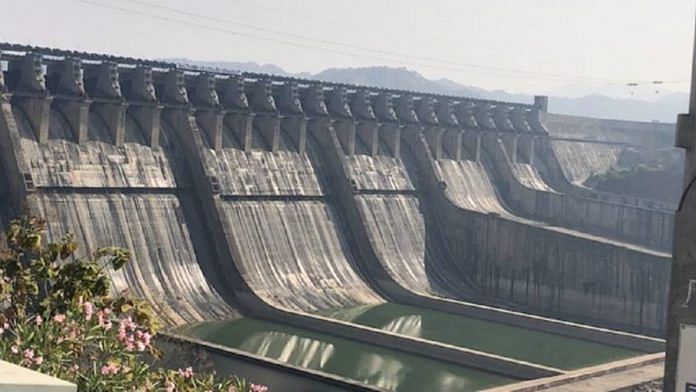New Delhi: The earlier emphasis on more and more dam construction needs to change and the focus needs to shift towards better management and distribution of water, noted water conservationist Mihir Shah told ThePrint in an interview. Shah, who is also an economist, had headed the high-level committee that drafted the National Water Policy (NWP) 2020.
“The country is running out of sites for further construction of large dams. There have also been massive time-lags and huge cost escalation in the construction of large and medium dam projects,” Shah said.
Advocating a shift, he said that there are unacceptable social and environmental costs, including submergence of large tracts of fertile land, as also displacement of people — especially vulnerable communities such as the Adivasis, which have given rise to conflicts and delays in project completion.
“As river rejuvenation has become a growing national concern, the impact of dam construction on river flows has also come under increasing scrutiny,” he said.

The economist and water conservationist said the gap between the Irrigation Potential Created (IPC) and the Irrigation Potential Utilised (IPU) was last estimated by the NITI Aayog to be 24 million hectares. “Bridging the IPC-IPU gap can add millions of hectares to irrigated area at very low cost, even without building a single new dam,” he said.
Shah added that to achieve this the management of command areas around the dams has to be handed over to the farmers themselves.
“All successful command area projects in several states show that once farmers themselves feel a sense of ownership, the process of operating and managing irrigation systems undergoes a profound transformation. Farmers willingly pay Irrigation Service Fees (determined in a transparent and participatory manner) to their Water Users Associations (WUAs). Collection of these fees enables WUAs to undertake proper repair and maintenance of distribution systems and ensure that water reaches each farm,” he said.
The panel’s recommendation comes at a time when the government is pushing to build a 77-metre high dam across the Ken river in Madhya Pradesh, as part of the proposed Ken-Betwa river-linking project.
Asked about his views on the proposed project, Shah said, “… a national water policy does not go into the merits or demerits of specific projects. At the same time, the NWP has sought to draw upon the latest scientific research on all issues, including this one. The policy takes a very clear view that all water harvesting, in whichever form it is done, must remain mindful of the needs of downstream communities and essential river flows.”
Shah said the NWP counsels that inter-basin transfers of water should be considered on merits of each case after evaluating the environmental and social impacts of such transfers.
“Care should be taken that such transfers are not at the expense of donor basin communities and should not compromise their lifeline, livelihood, and ecosystem needs, which would have priority as compared to non-basin communities,” he said.
Also read: Overwhelming focus on wheat & rice aggravated India’s water crisis: Economist Mihir Shah
‘Widespread RO units use adversely affects water quality, health’
The draft NWP 2020 has also red-flagged the widespread use of Reverse Osmosis (RO) units.
“The widespread use of RO has adverse consequences for water quality and health. A very large proportion of the input water is wasted and reject water from ROs has high concentrations of contaminants,” Shah noted, adding that data on water quality should be assessed before adopting any water purification technology, including RO units, which should be discouraged if TDS (total dissolved solids) count in water is less than 500mg/l.
“Strict regulation of disposal of RO reject water is needed with more research on improving water recovery rates. Choice of technology must be determined by the quantity and quality of water available and the purpose of its use.”
(Edited by Poulomi Banerjee)
Also read: After rural homes, govt now plans mega scheme to extend tap water facility to urban homes



